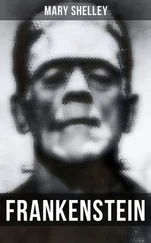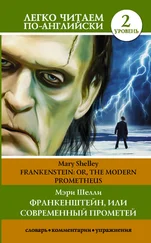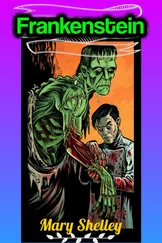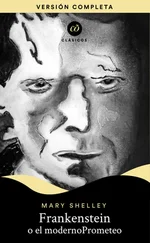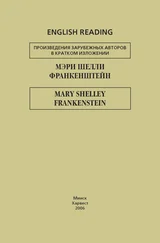Mary Shelley - The Fortunes of Perkin Warbeck
Здесь есть возможность читать онлайн «Mary Shelley - The Fortunes of Perkin Warbeck» — ознакомительный отрывок электронной книги совершенно бесплатно, а после прочтения отрывка купить полную версию. В некоторых случаях можно слушать аудио, скачать через торрент в формате fb2 и присутствует краткое содержание. Жанр: unrecognised, на английском языке. Описание произведения, (предисловие) а так же отзывы посетителей доступны на портале библиотеки ЛибКат.
- Название:The Fortunes of Perkin Warbeck
- Автор:
- Жанр:
- Год:неизвестен
- ISBN:нет данных
- Рейтинг книги:3 / 5. Голосов: 1
-
Избранное:Добавить в избранное
- Отзывы:
-
Ваша оценка:
- 60
- 1
- 2
- 3
- 4
- 5
The Fortunes of Perkin Warbeck: краткое содержание, описание и аннотация
Предлагаем к чтению аннотацию, описание, краткое содержание или предисловие (зависит от того, что написал сам автор книги «The Fortunes of Perkin Warbeck»). Если вы не нашли необходимую информацию о книге — напишите в комментариях, мы постараемся отыскать её.
The Fortunes of Perkin Warbeck — читать онлайн ознакомительный отрывок
Ниже представлен текст книги, разбитый по страницам. Система сохранения места последней прочитанной страницы, позволяет с удобством читать онлайн бесплатно книгу «The Fortunes of Perkin Warbeck», без необходимости каждый раз заново искать на чём Вы остановились. Поставьте закладку, и сможете в любой момент перейти на страницу, на которой закончили чтение.
Интервал:
Закладка:
Mary Shelley
The Fortunes of Perkin Warbeck
PUBLISHER NOTES:
Quality of Life, Freedom, More time with the ones you Love.
Visit our website: LYFREEDOM.COM
J'ai veu filz d'Angleterre, Richard d'Yorc nommé.
Que l'on disoit en terre, estinct et consommé.
Endurer grant souffrance; et par nobles exploitz.
Vivre en bonne esperance, d'estre Roy des Angloys.
—Old French Chronicle.
Preface
The story of Perkin Warbeck was first suggested to me as a subject for historical detail. On studying it, I became aware of the romance which his story contains, while, at the same time, I felt that it would be impossible for any narration, that should be confined to the incorporation of facts related by our old Chronicle to do it justice.
It is not singular that I should entertain a belief that Perkin was, in reality, the lost Duke of York. For, in spite of Hume, and the later historians who have followed in his path, no person who has at all studied the subject but arrives at the same conclusion. Records exist in the Tower, some well known, others with which those who have access to those interesting papers are alone acquainted, which put the question almost beyond a doubt.
This is not the place for a discussion of the question. The principal thing that I should wish to be impressed on my reader's mind is, that whether my hero was or was not an impostor, he was believed to be the true man by his contemporaries. The partial pages of Bacon, of Hall, and Holinshed and others of that date, are replete with proofs of this fact. There are some curious letters, written by Sir John Ramsay, Laird of Balmayne, calling himself Lord Bothwell, addressed to Henry the Seventh himself, which, though written by a spy and hireling of that monarch, tend to confirm my belief, and even demonstrate that in his eagerness to get rid of a formidable competitor, Henry did not hesitate to urge midnight assassination. These letters are printed in the Appendix to Pinkerton's History of Scotland. The verses which form the motto to these volumes, are part of a rythmical Chronicle, written by two subjects of Burgundy, who lived in those days; it is entitled "Recollection des Merveilles, advenues en nostre temps, commencée par très élégant orateur, Messire Georges Chastellan, et continuée par Maistre Jean Molinet."
In addition to the unwilling suffrage of his enemies, we may adduce the acts of his friends and allies. Human nature in its leading features is the same in all ages. James the Fourth of Scotland was a man of great talent and discernment: he was proud; attached, as a Scot, to the prejudices of birth; of punctilious honour. No one can believe that he would have bestowed his near kinswoman, nor have induced the Earl of Huntley to give his daughter in marriage, to one who did not bear evident signs of being of royal blood.
The various adventures of this unfortunate Prince in many countries, and his alliance with a beautiful and high-born woman, who proved a faithful, loving wife to him, take away the sting from the ignominy which might attach itself to his fate; and make him, we venture to believe, in spite of the contumely later historians have chosen, in the most arbitrary way, to heap upon him, a fitting object of interest—a hero to ennoble the pages of a humble tale.
Chapter
1
He seemed breathless, heartless, faint and wan.
And all his armour sprinkled was with blood.
And soiled with dirty gore, that no man can
Discern the hue thereof. He never stood.
But bent his hasty course towards the idle flood.
—Spenser.
After a long series of civil dissension—after many battles, whose issue involved the fate of thousands—after the destruction of nearly all the English nobility in the contest between the two Roses, the decisive battle of Bosworth Field was fought on the 22d of August, 1415, whose result was to entwine, as it was called, the white and red symbols of rivalship, and to restore peace to this unhappy country.
The day had been sunny and warm: as the evening closed in a west wind rose, bringing along troops of fleecy clouds, golden at sunset, and then dun and grey, veiling with pervious network the many stars. Three horsemen at this hour passed through the open country between Hinckley and Welford in Leicestershire. It was broad day when they descended from the elevation on which the former stands, and the villagers crowded to gaze upon the fugitives, and to guess, from the ensigns they bore, to which party they belonged, while the warders from the near castle hastened out to stop them, thus to curry favour with the conqueror; a design wholly baffled. The good steeds of the knights, for such their golden spurs attested them to be, bore them fast and far along the Roman road, which still exists in those parts to shame our modern builders. It was dusk when, turning from the direct route to avoid entering Welford, they reached a ford of the Avon. Hitherto silence had prevailed with the party—for until now their anxiety to fly had solely occupied their thoughts. Their appearance spoke of war, nay, of slaughter. Their cloaks were stained and torn; their armour was disjointed, and parts of it were wanting; yet these losses were so arbitrary, that it was plain that the pieces had been hacked from their fastenings. The helm of the foremost was deprived of its crest; another wore the bonnet of a common soldier, which ill accorded with the rest of his accoutrements; while the third, bareheaded, his hair falling on his shoulders, lank and matted from heat and exercise, gave more visible tokens of the haste of flight. As the night grew darker, one of them, and then another, seemed willing to relax somewhat in their endeavours: one alone continued, with unmitigated energy, to keep his horse at the same pace they had all maintained during the broad light of day.
When they reached the ford, the silence was broken by the hindmost horseman; he spoke in a petulant voice, saying:—"Another half mile at this pace, and poor Floeur-de-Luce founders; if you will not slacken your speed, here we part, my friends. God save you till we meet again!"
"Evil betide the hour that separates us, brother!" said the second fugitive, reining in; "Our cause, our peril, our fate shall be the same. You, my good lord, will consult your own safety."
The third cavalier had already entered the stream: he made a dead halt while his friends spoke, and then replied:—"Let us name some rendezvous where, if we escape, we may again meet. I go on an errand of life and death; my success is doubtful, my danger certain. If I succeed in evading it, where shall I rejoin you?"
"Though the event of this day has been fatal to the king," answered the other, "our fortunes are not decided. I propose taking refuge in some sanctuary, till we perceive how far the Earl of Richmond is inclined to mercy."
"I knew the Earl when a mere youth, Sir Humphrey Stafford," said the foremost rider, "and heard more of him when I visited Brittanny, at the time of King Louis's death, two years ago. When mercy knocks at his heart, suspicion and avarice give her a rough reception. We must fly beyond sea, unless we can make further stand. More of this when we meet again. Where shall that be?"
"I have many friends near Colchester," replied the elder Stafford, "and St. Mary boasts an asylum there which a crowned head would not dare violate. Thence, if all else fail, we can pass with ease to the Low Countries."
"In sanctuary at Colchester—I will not fail you. God bless and preserve you the while!"
The noble, as he said these words, put spurs to his horse, and without looking back crossed the stream, and turning on the skirts of a copse was soon out of sight of his companions. He rode all night, cheering his steed with hand and voice; looking angrily at the early dawning east, which soon cast from her cloudless brow the dimness of night.
Читать дальшеИнтервал:
Закладка:
Похожие книги на «The Fortunes of Perkin Warbeck»
Представляем Вашему вниманию похожие книги на «The Fortunes of Perkin Warbeck» списком для выбора. Мы отобрали схожую по названию и смыслу литературу в надежде предоставить читателям больше вариантов отыскать новые, интересные, ещё непрочитанные произведения.
Обсуждение, отзывы о книге «The Fortunes of Perkin Warbeck» и просто собственные мнения читателей. Оставьте ваши комментарии, напишите, что Вы думаете о произведении, его смысле или главных героях. Укажите что конкретно понравилось, а что нет, и почему Вы так считаете.



